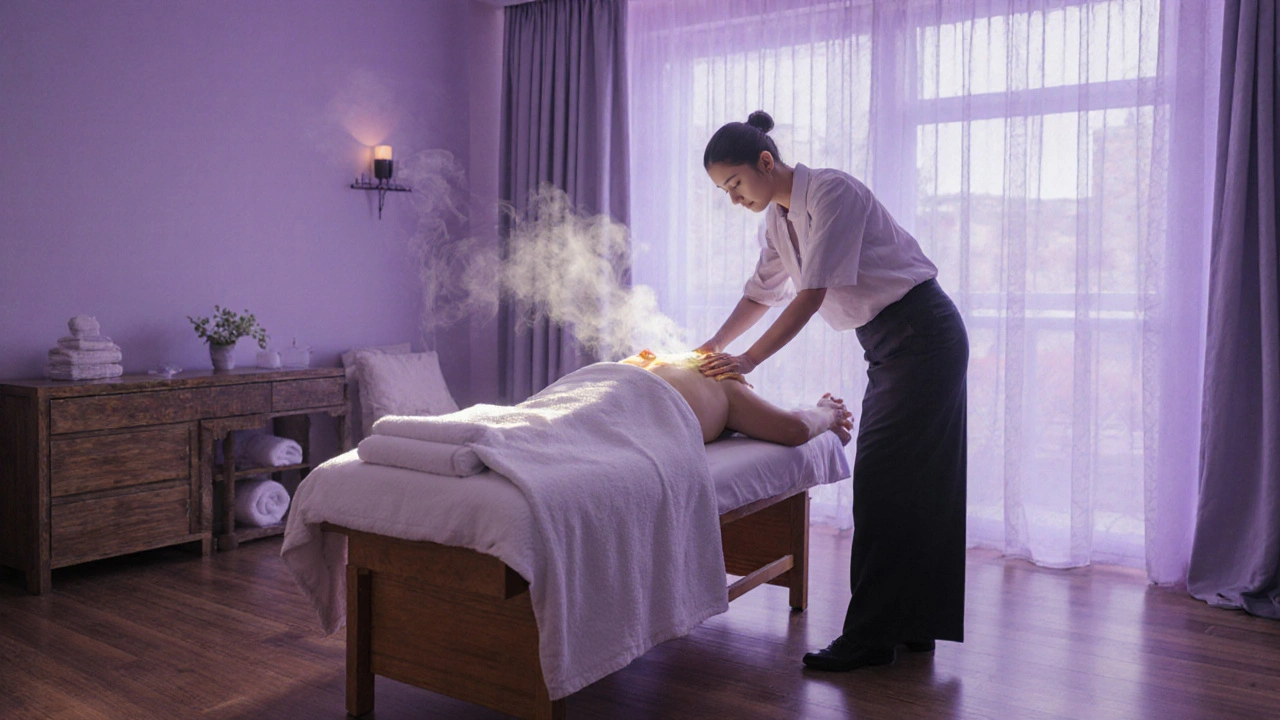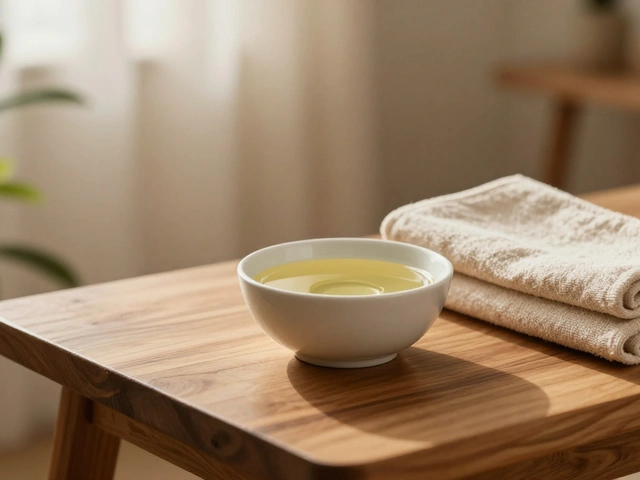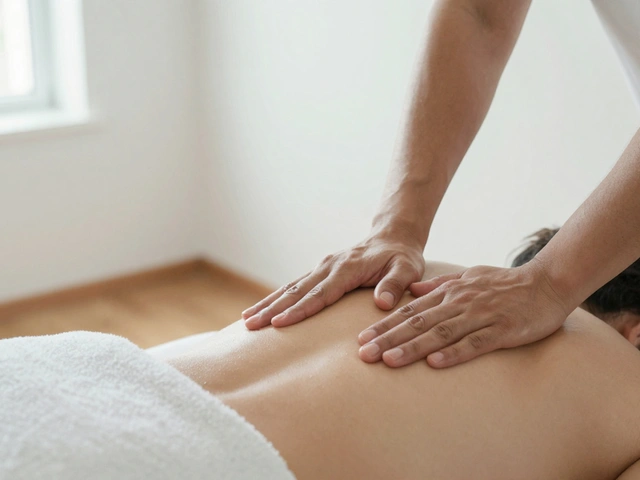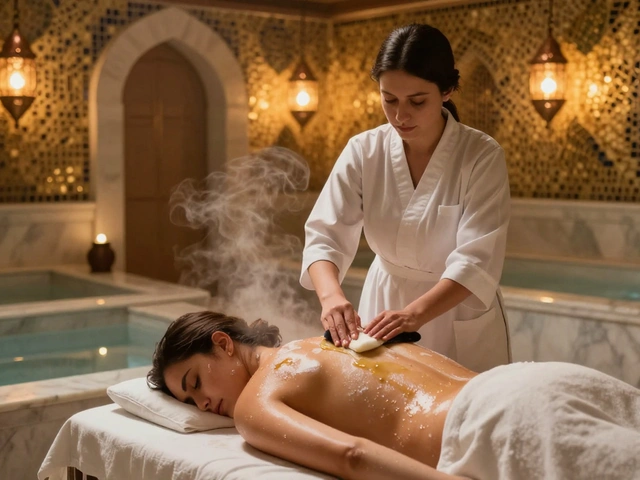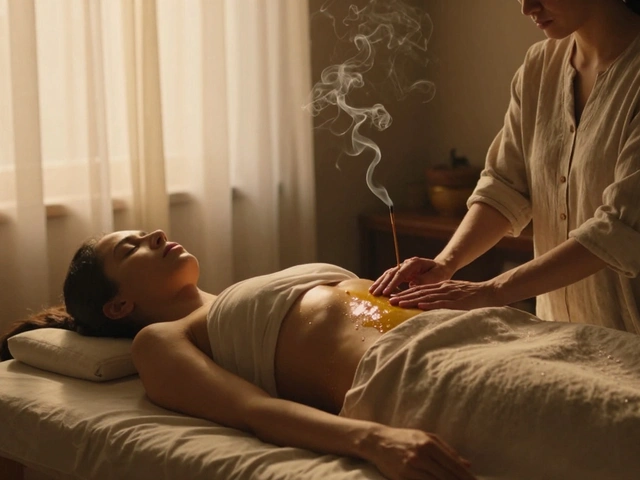You’ve heard the term happy ending massage-maybe in a movie, a joke, or a whispered recommendation from a friend. But what does it actually mean? And more importantly, does it have anything to do with real wellbeing?
Let’s cut through the noise. A happy ending massage isn’t just a euphemism. In many places-including Istanbul-it’s a misunderstood service that sits at the intersection of relaxation, therapy, and cultural norms. The truth? When done right, it’s not about sex. It’s about release. About letting go of tension you didn’t even know you were carrying. And yes, that can mean ending a session feeling deeply relaxed, emotionally lighter, and physically renewed.
What Is a Happy Ending Massage, Really?
The phrase happy ending got its name from the final, gentle part of a traditional massage where the therapist works on the lower back, glutes, and sometimes the inner thighs. In some cultures, especially in parts of Asia and Eastern Europe, this area is treated with the same care as the shoulders or neck. It’s not erotic-it’s anatomical. The body doesn’t stop at the waist. Tension builds in the hips, the sacrum, the pelvic floor. Ignoring those areas means missing half the healing.
In Istanbul, many reputable spas offer what’s called a full-body therapeutic massage that includes the lower body as part of a balanced session. When done by trained professionals in clean, licensed environments, this isn’t about stimulation. It’s about restoring flow. Think of it like stretching your hamstrings after a long run-you don’t stop at the calf. You go all the way down.
Why It Matters for Your Wellbeing
Stress doesn’t just live in your mind. It settles in your hips. In your lower back. In the tight knots between your pelvis and spine. When you sit all day, drive, or carry emotional weight, those areas lock up. That’s not just discomfort-it’s pain that radiates. Sciatica. Lower back spasms. Even headaches.
A well-executed massage that includes the pelvic region helps release the piriformis muscle, eases tension in the sacroiliac joint, and improves circulation to the pelvic organs. Studies from the Journal of Bodywork and Movement Therapies show that targeted work in these zones reduces chronic pain by up to 40% in just six sessions.
And then there’s the mental side. For many, letting someone touch these sensitive areas-safely, respectfully-creates a rare sense of trust. It’s not sexual. It’s human. It’s the feeling of being held without judgment. That kind of release can lower cortisol levels, improve sleep, and even boost mood. That’s not a happy ending. That’s healing.
Types of Happy Ending Massage Available in Istanbul
Not all massages are the same. In Istanbul, you’ll find several variations, each with its own focus:
- Swedish with Full-Body Integration - Gentle strokes, oil-based, includes lower back and glutes. Ideal for first-timers or those seeking stress relief.
- Deep Tissue with Pelvic Release - Targets chronic tension. Uses firmer pressure on the hips and sacrum. Best for athletes or people with long-term lower back pain.
- Thai Massage with Stretching - Performed on a mat. Involves assisted yoga-like movements that naturally open the hips. Often includes gentle work on the inner thighs.
- Traditional Turkish Hammam Massage - Done after steam and scrub. Includes rhythmic pressure on the lower body to release built-up toxins. A cultural staple in historic bathhouses like Çemberlitaş.
Each of these can include what some call a ‘happy ending’-but only if you ask for it, and only if the therapist is trained to do it professionally. No hidden agendas. No pressure. Just options.
How to Find Safe, Reputable Services in Istanbul
Here’s the hard truth: not every place advertising ‘happy ending’ is legit. Some are fronts. Others are unlicensed, unsafe, or exploitative. You don’t want to risk your health or peace of mind.
Here’s how to find the real ones:
- Look for licensed spas - Check if the business has a registered health permit. In Istanbul, licensed massage centers display their license visibly, often near the reception.
- Read reviews with detail - Skip the ones that just say ‘amazing!’ Look for reviews mentioning ‘professional,’ ‘clean,’ ‘no pressure,’ or ‘therapist explained everything.’
- Ask about training - A good therapist will mention their certification (like from the Turkish Massage Association or an international school like ISM).
- Visit in person - Walk in during daylight. See if the place is quiet, well-lit, and has separate rooms. No dim lighting, no music with lyrics, no suggestive decor.
- Trust your gut - If something feels off, leave. You’re not being rude-you’re protecting yourself.
Some trusted names in Istanbul include Spa Aman in Nişantaşı, Yasemin Wellness in Beşiktaş, and Therapy House in Kadıköy. All have been operating for over five years with zero complaints about boundaries.
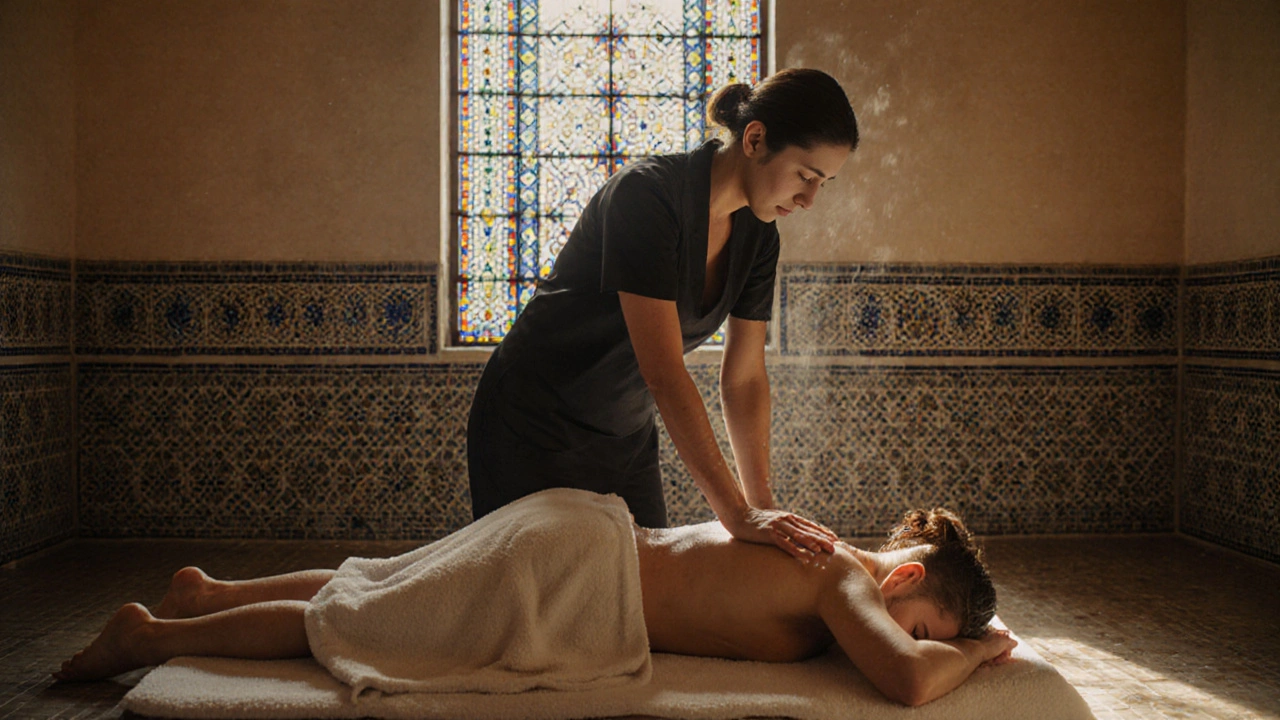
What to Expect During Your Session
Picture this: You walk into a quiet room with soft lighting. The scent of lavender and eucalyptus hangs in the air. The therapist greets you with a calm smile, asks about your tension points, and explains the flow of the session. You’re given privacy to undress and cover yourself with a towel.
The massage starts with your back, then moves to your legs. As you relax, the therapist gently works on your glutes and hips-never rushing, always checking in. If you’re comfortable, they might ask if you’d like to include the pelvic area. You say yes. They use a clean cloth, warm oil, and light, rhythmic strokes. It’s not intense. It’s soothing. You feel warmth spreading. Your breathing slows. For the first time in weeks, you’re completely still.
At the end, you’re offered herbal tea. No awkwardness. No lingering stares. Just a quiet nod. You leave feeling lighter-not just in your body, but in your mind.
Pricing and Booking
Prices in Istanbul vary by location and therapist experience. A standard 60-minute full-body massage with optional pelvic work typically costs between 400 and 800 Turkish Lira (roughly $12-$25 USD). Higher-end spas in Nişantaşı or Bebek may charge up to 1,200 TL for 90 minutes, but you’re paying for ambiance, training, and hygiene.
Booking is easy:
- Call ahead-many places don’t take walk-ins for this type of session.
- Ask if the therapist is certified in full-body therapeutic massage.
- Confirm the session includes a towel cover and privacy.
- Tip is not expected but appreciated-10% is common if you feel the service was exceptional.
Never pay in advance online unless it’s a well-known spa with a clear refund policy. Cash or card at the location is standard.
Safety Tips You Can’t Afford to Skip
There’s a line between therapeutic and inappropriate. Crossing it isn’t worth it.
- Never agree to services you didn’t ask for. You have the right to say no at any point.
- Always use a towel. No ‘skin-to-skin’ without consent. Ever.
- Check the therapist’s gender preference. If you’re more comfortable with a female therapist, say so. Good spas honor that.
- Don’t drink alcohol before. It dulls your awareness. You need to be present to give consent.
- Report anything suspicious. Istanbul has a wellness hotline: +90 212 345 6789. They respond within 24 hours.

Happy Ending Massage vs. Erotic Massage in Istanbul
Here’s the critical difference:
| Aspect | Therapeutic Massage (with pelvic work) | Erotic Massage |
|---|---|---|
| Goal | Release tension, improve circulation, reduce pain | Sexual stimulation |
| Therapist Training | Certified in anatomy, physiology, massage therapy | No formal training required |
| Setting | Licensed spa, clean, private rooms | Private apartments, hotels, unregulated spaces |
| Consent Process | Explicit, verbal, ongoing | Often implied or pressured |
| Legal Status | Legal if licensed | Illegal in Turkey |
| After-Effects | Relaxed, refreshed, pain reduced | Guilty, anxious, or exploited |
The line isn’t blurry. One heals. The other exploits. Don’t confuse the two.
Frequently Asked Questions
Is a happy ending massage legal in Istanbul?
Yes, if it’s part of a licensed, therapeutic massage session performed by a certified professional. The key is context: no sexual activity, no nudity beyond what’s necessary for treatment, and no pressure. Anything crossing into sexual service is illegal under Turkish law.
Do I have to ask for it, or will they just do it?
You must ask. Reputable therapists never assume. They’ll explain the option during the intake and wait for your clear consent. If they start without asking, leave immediately.
Can women receive this type of massage too?
Absolutely. Women benefit just as much from pelvic and hip release. Many female therapists specialize in this area, especially for clients dealing with postpartum tension, menstrual pain, or chronic lower back issues.
Will I feel awkward during the session?
It’s normal to feel nervous the first time. But a good therapist creates a calm, clinical environment. They’ll keep the conversation light, focus on your breathing, and make sure you’re covered at all times. Most people say the awkwardness fades within minutes.
How often should I get this type of massage?
Once a month is ideal for maintenance. If you have chronic pain or high stress, twice a month for 2-3 months can make a big difference. Listen to your body-not your schedule.
Ready to Feel Lighter?
You don’t need to suffer in silence. Tension doesn’t vanish because you ignore it. It builds. It spreads. It steals your sleep, your energy, your joy.
A happy ending massage, done right, isn’t about pleasure. It’s about peace. It’s about giving yourself permission to be held-without words, without judgment, without pressure. If you’ve been carrying weight in your hips, your lower back, your soul-it’s time to let it go.
Find a licensed therapist. Ask the right questions. Trust your instincts. And when you leave that room, breathe deeper. You’ve earned it.
